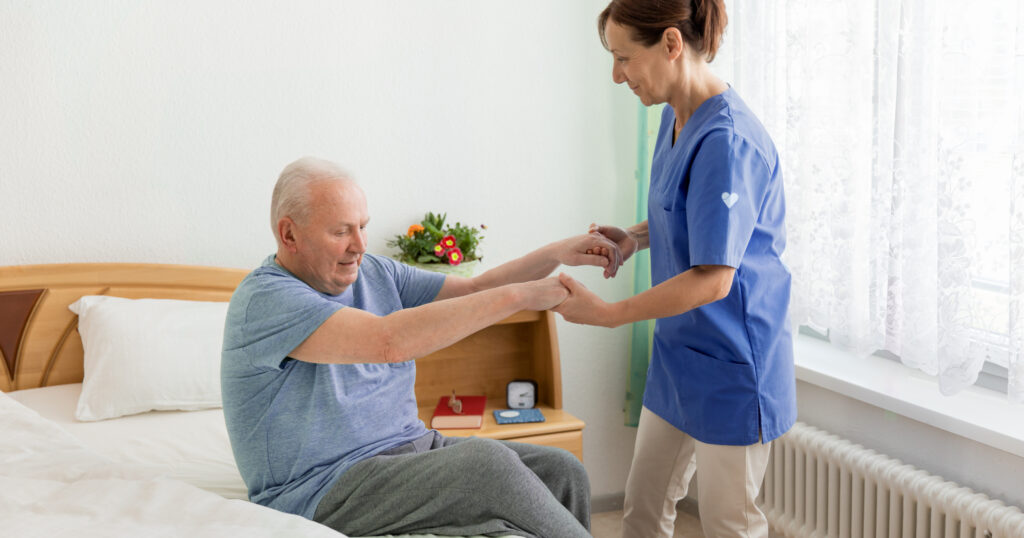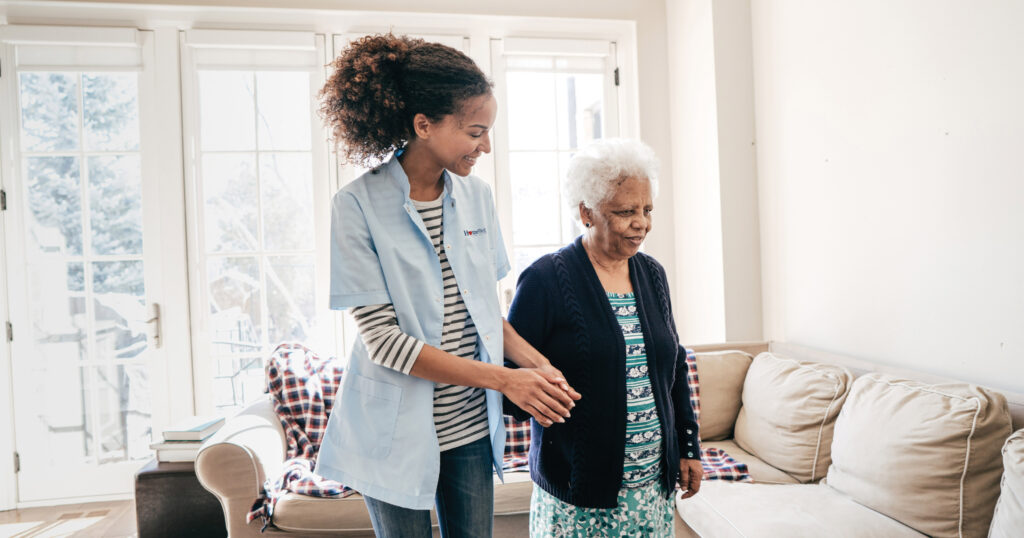Know Your Care Options When Your Aging Parent or Loved One Needs Additional Help
By Mikelle Rappaport, Senior Care Consultant, Golden Lifestyle Partners.
If you have an aging parent or loved one, it’s natural to be concerned about them needing extra help as they get older.
It’s especially true if they don’t even want to discuss the idea of getting help. No one wants to think about the idea of getting older, or about having to move from the comforts of home. Most of us would rather live out our retirement years at home, as independently as possible.
Unfortunately, without a long-term plan in place, many older adults and their families are faced with making quick and difficult decisions after a significant health event. It’s better to know the options in advance, and to know when it’s time to start considering them.

What are the care options?
The most likely options you’ll consider are home care and assisted living, which can be customized or combined to address your loved one’s needs.
1: Home care is one of the fastest growing and most requested services in the United States today. Services can range from simple companionship to more personal care and supervision, provided by trained, professional caregivers. Caregivers can assist with activities of daily living such as bathing, toileting, and/or mobility needs, as well as light housekeeping, meal preparation and medication adherence.
Home care can be tailored to fit your loved one’s needs, and many families find that loved ones are more open to the idea of a private caregiver in their home than elsewhere.
2: Assisted living is often an appropriate long-term care alternative to keep an aging parent safe and healthy for longer. According to the National Center for Assisted Living, nearly 1 million older adults now reside in assisted living communities in the US.
These communities are designed for older adults who prefer apartment-style living, with help provided for day-to-day tasks. Like home care, the goal is to enable independent living with services tailored to each resident’s needs. Therapeutic activities and amenities are typically provided, as well as help with daily tasks like dressing, bathing, toileting, medication management, transportation and more as needed.
3: Home care and assisted living can go hand in hand. Many families start with home care; then, as the needs of their loved one progress, continue to support them with a private caregiver in assisted living. This option provides comfort and consistency—especially if you can keep the same caregiver—and can make the transition from home to a new assisted living environment easier.

When is it time to consider your care options?
No one else knows your parent or loved one like you do. If you have a feeling that something isn’t right, it probably isn’t—especially if you notice the following signs:
1: Decline in health condition. It is not uncommon for older adults to experience one or more than one chronic health condition. If these conditions are not managed well, you will eventually see a decline in your loved one’s physical and/or mental health requiring a higher level of care intervention, such as frequent doctor’s visits or a hospitalization.
2: Change in self-care performance. Self-care tasks may include bathing, dressing, and toileting tasks. If you notice a change in hygiene practices such as wearing the same clothes daily, bad breath, unpleasant body odor, or long/dirty nails, it should be a cause for concern.
3: Inability to manage medications. Chronic health conditions increase as we age and these conditions can require complex treatments, including a wide variety of medications. If not managed properly, medications can be missed or be taken incorrectly, resulting in serious health consequences.
4: Poor nutritional intake. Physical limitations can make it difficult for older adults to cook for themselves. Even mild cognitive impairment can make meal preparation challenging. Microwavable meals may be over-relied upon in place of a nutritious, home cooked meal, which can negatively impact health over time. As a result, you may notice a significant change in weight or frailty.
5: Safety concerns. If you notice your loved one begin to walk with an unsteady gait, poor balance, or a decrease in mobility, they are at high risk for a fall incident. According to the CDC, 3 million older adults are treated in the emergency room every year for an injury resulting from a fall. Most falls are due to an unsafe environment: clutter, poor lighting, or slick surfaces, with most falls occurring on the way to or from the bathroom. Cognitive impairment is also a safety concern because of the risk for wandering and increased episodes of forgetfulness.

6: Decrease in social activities. Social connections and feeling of connectivity with others are important to anyone’s overall well-being and health. Social withdrawal can indicate depression, loneliness, or signs of cognitive decline. A decrease in your loved one’s social interactions with family, friends, or even neighbors is an indicator of social withdrawal.
7: Difficulty managing financial affairs. If you are starting to notice stacks of unopened mail, piles of papers and unpaid bills, or an increase in calls from collectors, your loved one may be overwhelmed or cognitively unable to manage their own financial affairs. This could indicate the need for the legal responsible party to assume responsibility of their financial affairs.
8: Home is unkept or in disrepair. An increase in clutter, dirty laundry and/or trash piling up, an unpleasant odor in the home, or a lack of home upkeep can be a cause for safety concerns and creates environmental hazards.
If you’re seeing these signs and you’re unsure of how to proceed, engaging the assistance of a senior care consultant or geriatric case manager can help you explore your home care or senior living options. These senior care professionals can help lessen the stress involved in locating the best match for your loved one, and are often a free service to seniors and their families.
Remember: starting the conversation and asking questions of your loved one may be hard. However, it will help you to keep your parent safe, happy and healthy for the long term.
Mikelle Rappaport is the owner and founder of Golden Lifestyle Partners. For over 20 years, she has dedicated her career to working with seniors and their families in a variety of capacities from geriatric social worker to an administrator for some of Hampton Roads premier long-term care communities. For more information, visit goldenlifestylepartners.com.